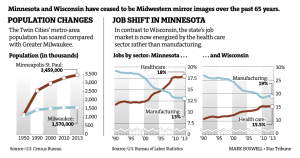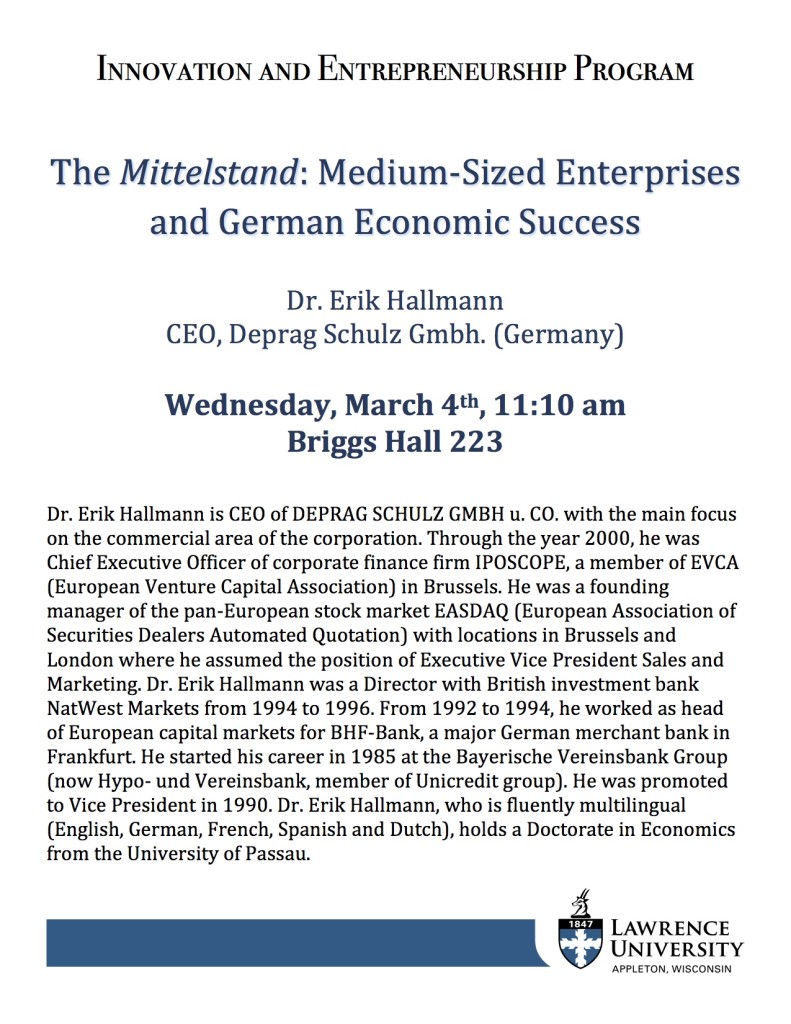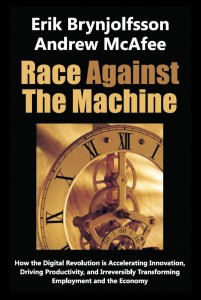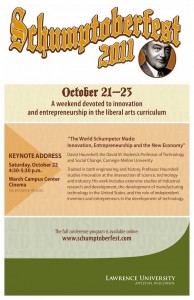What distinguishes the ‘scientific’ economist from all the other people who think, talk, and write about economic topics is a command of techniques that we class under three heads: history, statistics, and ‘theory.’ The three together make up what we call Economic Analysis.
That’s Joseph Schumpeter in Chapter 2 of his famous History of Economic Analysis. He believed that economics programs should emphasize and connect all three of those approaches. Those of us in ECON 405, The Economics of Innovation and Entrepreneurship, have been working to do just that, or at least the history and theory bit. To take a break from immersing themselves in the history of innovation and mathematical models of innovation and entrepreneurship, students have been exploring innovation in a variety of fields, and recording their journeys weekly on a blog. So, you can also learn about theatrical innovation, microfinance in Pakistan, the habits of the poor, private equity and innovation, innovation in the construction industry, multisided markets, telematics, or big data and consumer goods. Enjoy!







